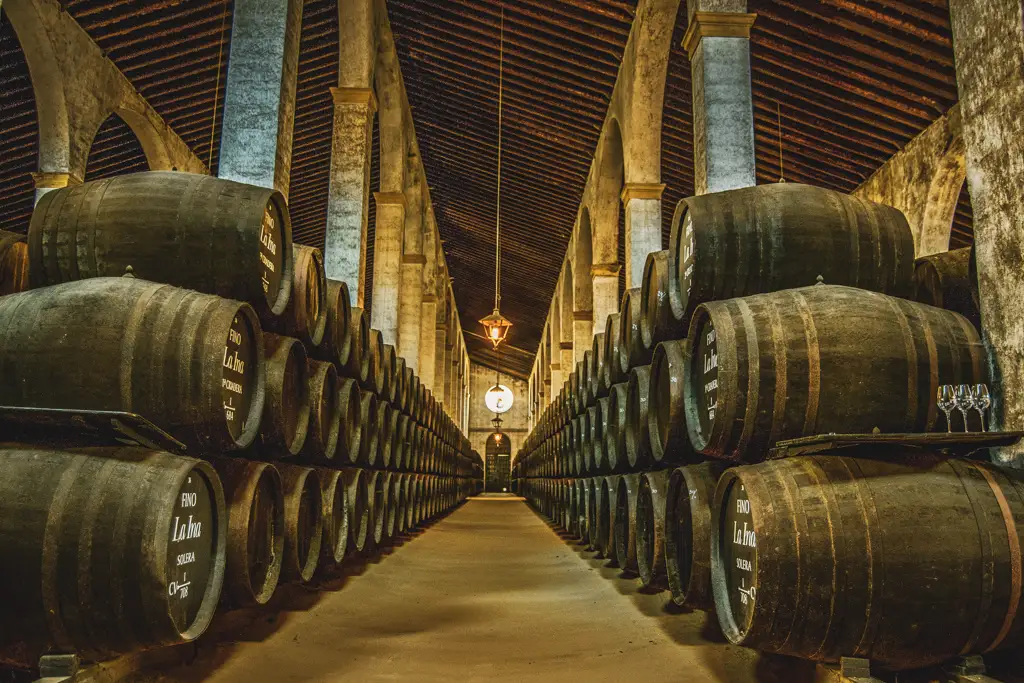
Almacenista comes from the Spanish word Almacén which means ‘store’. Almacenista is the term for a Jerez (also called Sherry in English or Xeres in French) stockkeeper who sells wine to shippers. In fact, it is a contraction of the legal term ‘Bodega de Crianza y Almacenado‘ that designates the companies dedicated to aging wines in the Marco de Jerez (the triangle of Jerez wine production).
At the very beginning of their existence, Almacenistas were small, artisanal producers run by strong-willed individuals who prided themselves on crafting the best Jerez wines in the area. Each one imposed their own style through choices made in the Solera system, storage conditions… Therefore, each one crafted their own distinctive wine style.
Jerez Almacenistas as intermediaries
At the very beginning, the ‘Almacenistas‘ served as intermediaries between the ‘producers’ (officially named ‘Bodega de la Zona de Produccion‘) and the so called ‘shippers’ (officially named the ‘Bodegas de Crianza y Expedicion‘). This was mainly due to the fact that wines from Jerez could be stored and mature for up to 30 years according to the Solera system, which could cause cash problems for small Jerez producers. On the other side, some ‘shippers’ wanted wines ready to be sold and get shipped abroad but did not want to invest in aging warehouses and Soleras. Consequently, the ‘Almacenistas‘ enabled the Sherry producers to get paid quickly while ensuring the Sherry ‘shippers’ received a finished product ready to get sold.
Jerez production from Almacenistas
With the evolution of time, the Almacenistas kept their own little Jerez production. However, they were not allowed to export this production. Rather, these wines were sold to locals and restaurateurs in ‘ventas‘. Once the Jerez was sold, the buyers had to give their own plastic containers for them to be filled.

Almacenista as a Marketing term

Unfortunately, ‘Almacenista‘ is also a term that has been used by Lustau, the Jerez firm, on their wine labels for marketing purposes. This is because Lustau buys in and bottle wines from Almacenistas without blending it with its own individual stocks (contrary to many other ‘Shippers‘). Therefore, it was considered that these wines had a certain distinctive style that deserved a special labeling term.
Today, almost every Jerez and Manzanilla wine is available in an Almacenista version. These versions are almost always of great quality. Furthermore, these wines are labeled with a fraction (1/6 or 1/16, for instance), the smaller the number under the fraction (number of barrels), the rarer and therefore more expensive the wine.
Almacenistas and the decline in Sherry sales
Unfortunately, Almacenistas have suffered significantly given that Sherry sales have dropped. As demand fell, the ‘Shippers‘ operated on their own stocks, not requiring further wine from the almacenistas. As a result, many almacenistas went bankrupt. The minimum stockholding for corporations to register as shippers was reduced from 12,500 hL to 500 hL by the Consejo Regulador in 1996. As a result, a number of the largest almacenistas, including El Maestro Sierra and Bodegas Tradición, became ‘shippers‘ and now offer their own wines under their own labels.

Follow me on my Social Media
Wine is a gourmet treasure, do not abuse alcohol!
None of this content has been sponsored
I did not receive any gifts or free samples that could be related to this article